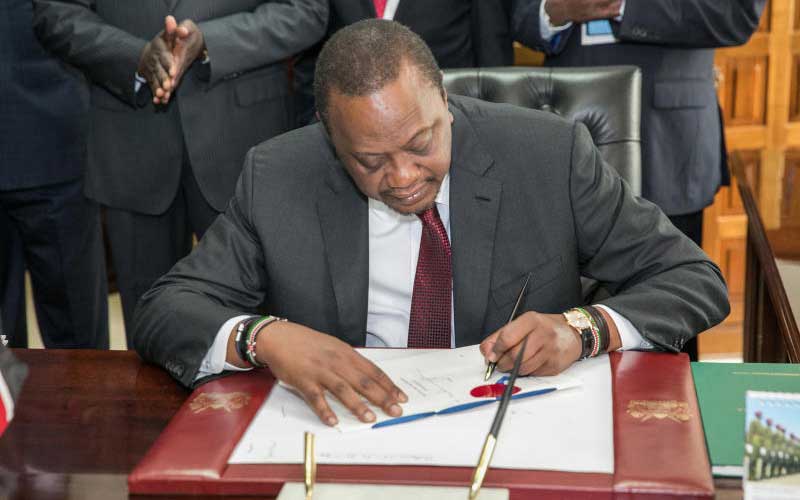×
The Standard e-Paper
Smart Minds Choose Us

President Uhuru Kenyatta must be lauded for refusing to accede to the Finance Bill 2019 in light of its failure to amend the Banking Act as proposed by the Executive.
However unpopular with MPs, this Presidential prerogative is one of those necessary ways by which the Executive can check a rogue Parliament by allowing the President a window to “legislate” unless two thirds of Parliament outvotes him.